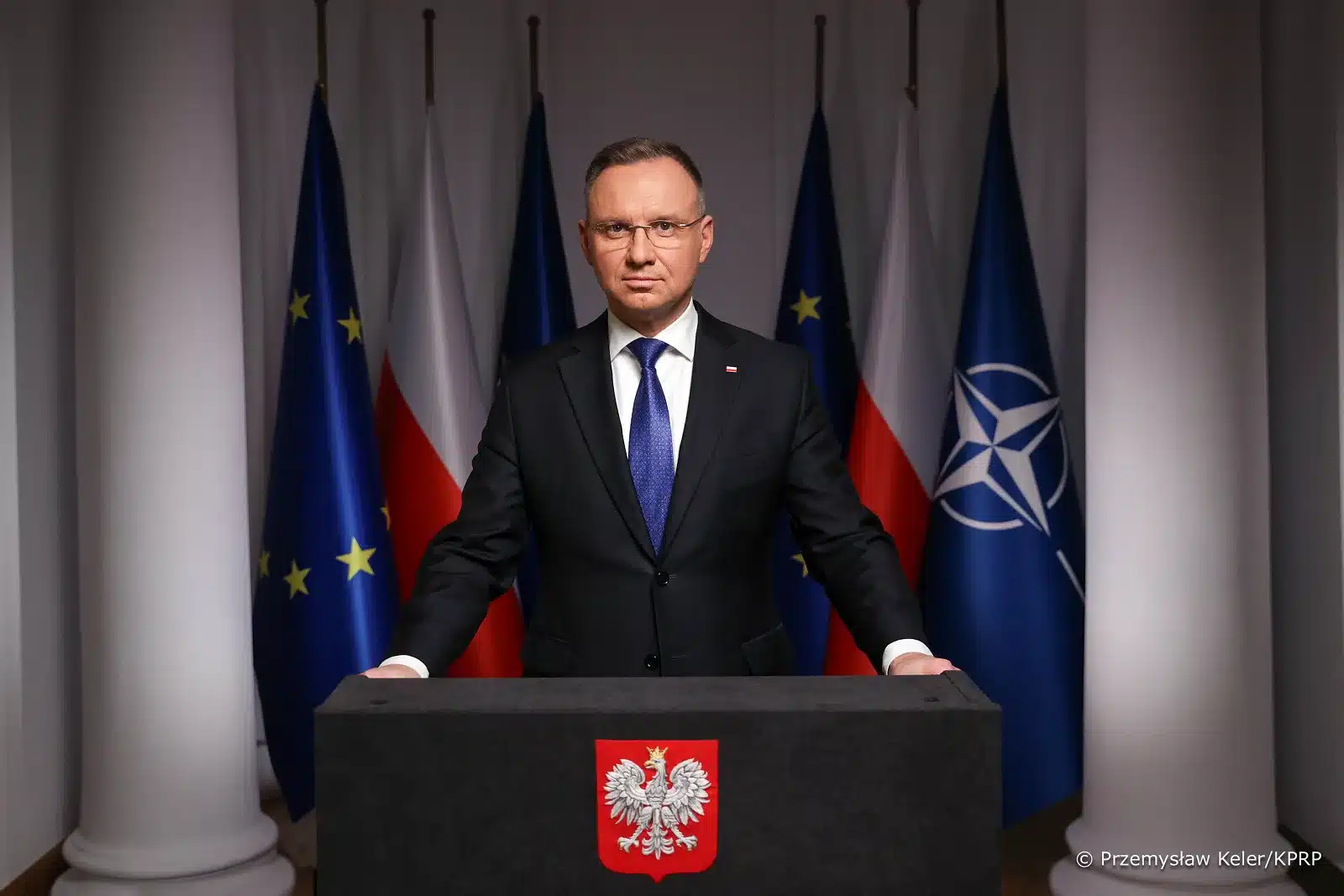Polish President Andrzej Duda marked his 10th annual New Year’s address with a reflection on the successes and challenges faced by Poland over the past decade. Emphasizing both national achievements and the pressing issues of the past year, President Duda’s speech touched on topics ranging from international relations to domestic policy, all while outlining his vision for Poland’s future.
Celebrating a Decade of Progress in Poland
In his address, President Duda expressed pride in the accomplishments of the past decade, describing Poland’s development as dynamic and transformative. He pointed to significant investments that have bolstered the nation’s infrastructure and economy, as well as strides in strengthening Poland’s military and border defenses.
He acknowledged the growing international recognition of Poland, highlighting the industrious and entrepreneurial spirit of the Polish people as a driving force behind the country’s success. “This has been a good time for Poland,” he affirmed, attributing much of this progress to the dedication and resilience of the nation’s citizens.
Challenges That Define the Present
Despite celebrating progress, President Duda candidly addressed the significant hurdles Poland faces. He pointed out alarming issues, such as a record-breaking budget deficit, delays in pivotal infrastructure projects like the Central Communication Port (CPK) and Poland’s first nuclear power plant, and systemic challenges in the healthcare sector that threaten hospital closures.
These challenges, he stressed, are vital to maintaining the standard of living for Polish citizens and ensuring sustainable national development. “These are not just administrative matters,” he emphasized. “They directly affect the lives of Poles.”
A Divided Political Landscape
President Duda was critical of the current government, accusing it of deepening divisions and exacerbating conflicts rather than focusing on essential reforms. He highlighted how these actions have created chaos in Poland’s justice system and eroded legal security, leading to a weakening of democratic values.
“The focus has been on intensifying divisions and fostering conflicts, resulting in a chaotic judicial system and diminished trust in the rule of law,” he asserted. He urged citizens to demand leadership that prioritizes national unity and the advancement of Poland’s interests.
The Geopolitical Context: Security and Sovereignty
The president also underscored the importance of Poland’s security in an increasingly volatile world. Reflecting on the ongoing war in Ukraine, Duda reiterated Poland’s unwavering stance: “This war cannot end in Russia’s victory. It must lead to a just peace that prevents future conflicts of an even greater scale.”
Highlighting Poland’s contributions to NATO and international defense initiatives, he cited his proposal for all NATO member states to increase defense spending to 3% of GDP. This initiative, first presented in Washington, is gradually gaining traction among other NATO members, which he sees as crucial for Poland’s security.
“Strong NATO leadership by the United States is the cornerstone of Poland’s and the region’s safety,” Duda stated, emphasizing that a robust transatlantic partnership remains Poland’s top priority as it assumes the presidency of the European Union in 2025.
Strengthening Polish-American Relations
Poland’s alliance with the United States was a focal point of the president’s speech. Describing the relationship as stronger than ever, Duda expressed optimism about its future. He noted Poland’s role in fostering closer economic and military cooperation between the EU and the US, which he views as essential for both European security and prosperity.
“Poland understands that a secure Europe is impossible without the United States’ engagement—militarily and economically,” he said. Duda expressed pride in the current depth of Polish-American ties and anticipated their further strengthening in the coming months.
A Call for Unity and Leadership
Looking ahead, President Duda called for a leader who would uphold Poland’s sovereignty, defend its Constitution, and prioritize the well-being of its people. He emphasized that the future of Poland’s security and democracy depends on leadership that rises above political divides.
“Security must remain the utmost priority for any leader entrusted with this office,” he declared. Reaffirming his own commitment, Duda pledged to continue advocating for Poland’s interests both domestically and on the international stage until the end of his presidency.
